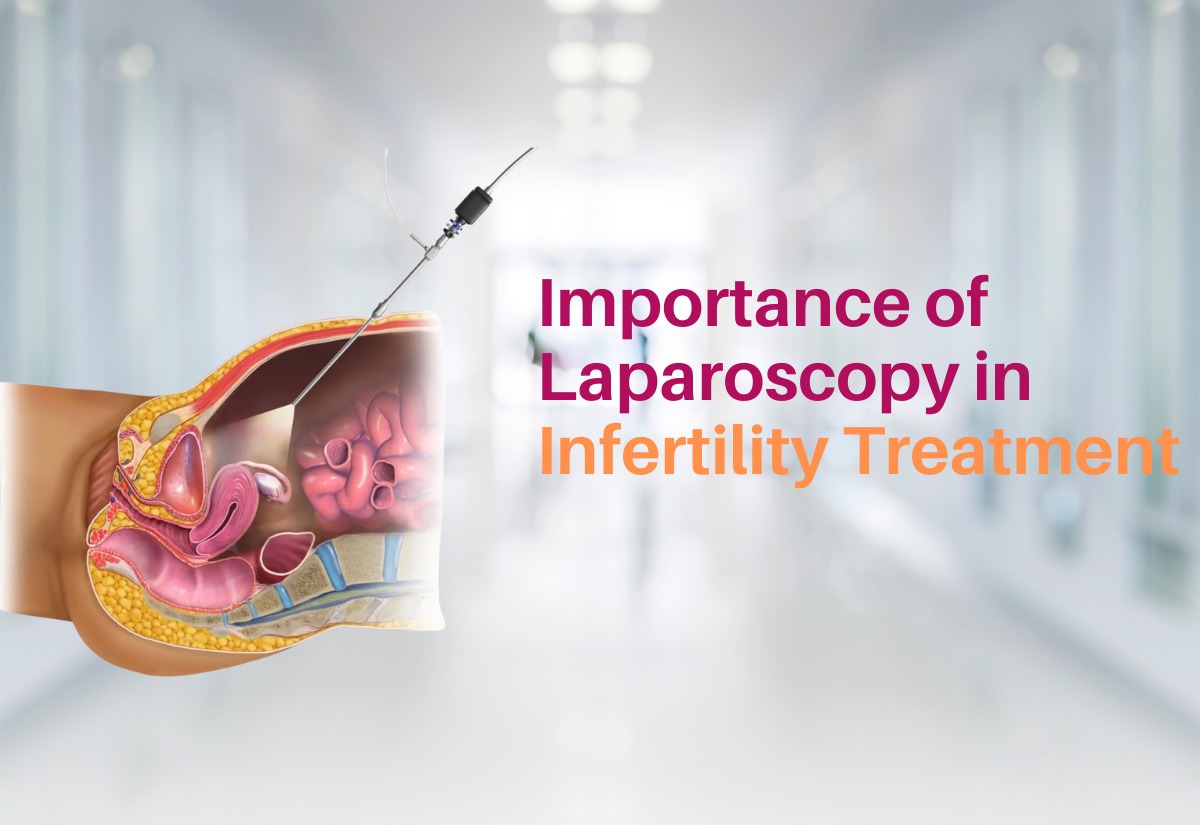Importance of Laparoscopy in Infertility Treatment: A Minimally Invasive Path to Parenthood
Infertility can be an emotionally challenging journey for couples longing to start a family. While diagnostic tests and hormonal therapies play a significant role, laparoscopy has emerged as a key tool in both diagnosing and treating infertility in women. Thanks to its minimally invasive nature and high diagnostic accuracy, laparoscopy is widely used in India and across the globe as a crucial step in the fertility treatment process.
If you are considering fertility treatment or looking for a deeper understanding of your reproductive health, it is essential to know why laparoscopy might be a vital part of your care plan.
What is Laparoscopy in Infertility?
Laparoscopy, also known as keyhole surgery, is a minimally invasive surgical procedure that allows doctors to view a woman’s reproductive organs — including the uterus, fallopian tubes, and ovaries — through a small incision in the abdomen.
Using a thin tube fitted with a camera (laparoscope), the surgeon can accurately diagnose underlying fertility problems and often treat them during the same procedure. This advanced technique reduces the need for open surgery and significantly lowers recovery time.
Why Laparoscopy is Important in Infertility Diagnosis
In many cases, traditional tests like ultrasound or blood work may not reveal the exact reason for infertility. This is where laparoscopy becomes crucial. It provides a clear and magnified view of the pelvic organs, helping to identify conditions such as:
- Endometriosis
- Pelvic adhesions (scar tissue)
- Blocked or damaged fallopian tubes
- Ovarian cysts or fibroids
- Ectopic pregnancy risks
- With laparoscopy, doctors can make accurate diagnoses that are often impossible to detect through non-invasive tests.
Therapeutic Role of Laparoscopy in Fertility Treatment
Laparoscopy is not just diagnostic — it is also therapeutic. During the same procedure, the surgeon can:
- Remove endometrial implants and ovarian cysts
- Release pelvic adhesions
- Open blocked fallopian tubes
- Remove fibroids affecting the uterine lining
- Treat mild to moderate cases of PCOS by ovarian drilling
By resolving these issues, laparoscopy can restore natural fertility or improve the success rate of assisted reproductive techniques like IUI and IVF.
Benefits of this Surgery in Infertility Treatment
More and more fertility specialists in India and worldwide recommend laparoscopy because it offers:
- ✅ Minimally invasive approach with tiny incisions
- ✅ Faster recovery time (usually within a week)
- ✅ Lower risk of infection and post-operative complications
- ✅ Accurate diagnosis and immediate treatment
- ✅ Short hospital stay (same day or overnight)
- ✅ Improved chances of conception naturally or via IVF
For many women, laparoscopy has proven to be a life-changing procedure, bringing them one step closer to achieving pregnancy.
When is Laparoscopy Recommended for Infertility?
Doctors typically recommend laparoscopy in the following cases:
- When infertility remains unexplained after basic evaluations
- When symptoms suggest endometriosis or pelvic adhesions
- If ultrasound reports indicate ovarian cysts or fibroids
- When fallopian tube blockage is suspected
- Prior to IVF to optimize uterine and pelvic health
- If there is recurrent implantation failure in IVF cycles
By identifying and treating such conditions, laparoscopy dramatically enhances fertility outcomes.
Cost of Infertility Treatment in India
One of the main reasons patients from around the world choose India for laparoscopy is the affordable cost without compromising medical standards. These prices include surgeon’s fees, anesthesia, hospital charges, and post-op care in reputed centers across cities like Delhi, Mumbai, Bangalore, Chennai, and Hyderabad.
Why Choose India for Laparoscopic Fertility Procedures?
India has emerged as a global leader in reproductive medicine due to:
- Highly skilled and internationally trained fertility surgeons
- World-class laparoscopic technology and operating theatres
- Affordable treatment packages for international patients
- High success rates in post-laparoscopy pregnancies
- Comprehensive patient support in multiple languages
- Visa and travel assistance for medical tourism
With IVF Treatment India, you gain access to the best hospitals and gynecologists with transparent pricing and full support throughout your treatment journey.
How Laparoscopy Supports IVF Success
In IVF treatments, the success of embryo implantation often depends on the health of the uterus and pelvic organs. Laparoscopy helps by:
- Ensuring no hidden endometriosis or adhesions hinder implantation
- Confirming open fallopian tubes (important for IUI cycles)
- Treating abnormalities that affect embryo development or attachment
In many cases, laparoscopy before IVF can significantly boost the chances of success, especially in women with failed IVF attempts or unexplained infertility.
Conclusion
Laparoscopy is more than just a surgical procedure — it is a powerful diagnostic and therapeutic tool that plays a critical role in the infertility treatment process. In the hands of experienced specialists, it can reveal hidden causes of infertility, resolve long-standing issues, and dramatically increase your chances of getting pregnant naturally or through IVF.
If you are considering fertility treatment, don’t overlook the importance of laparoscopy. Contact IVF Treatment India today to consult with leading gynecologists and explore advanced, affordable laparoscopic options tailored to your needs.
Frequently Asked Questions (FAQs)
1. Is laparoscopy painful?
No. It is performed under general anesthesia, and patients typically experience only mild discomfort during recovery.
2. How long is the recovery after laparoscopy?
Most women recover within 5–7 days and can resume normal activities soon after.
3. Does laparoscopy improve fertility?
Yes. By treating underlying conditions like endometriosis, cysts, or adhesions, laparoscopy can greatly improve fertility outcomes.
4. Can I get pregnant naturally after laparoscopy?
Many women conceive naturally within 6–12 months following laparoscopy, depending on the condition treated.
5. Is laparoscopy safe in India for international patients?
Absolutely. India is known for its safe and advanced laparoscopic procedures performed by expert fertility surgeons in accredited hospitals.
Read More: Treatment for Irregular Periods in India

